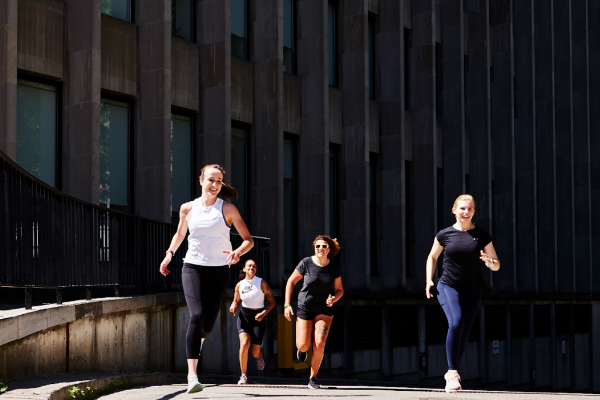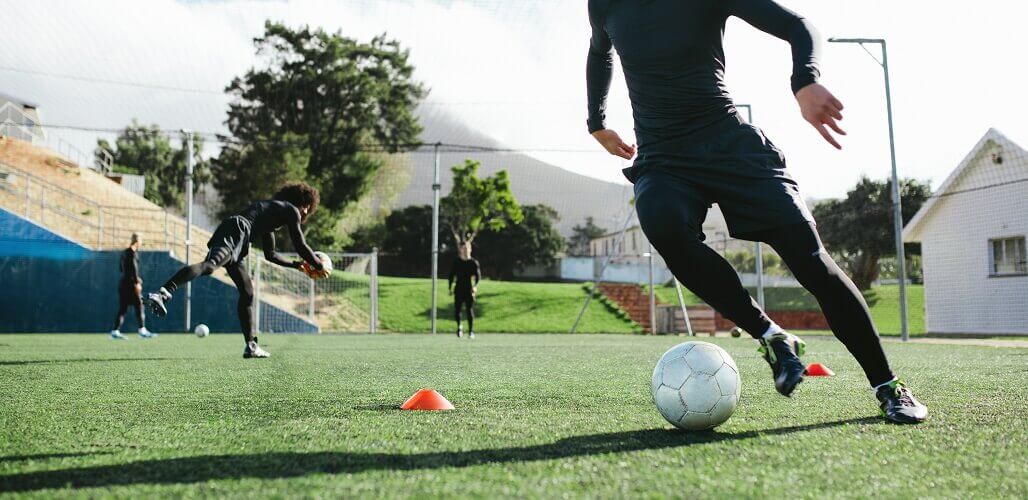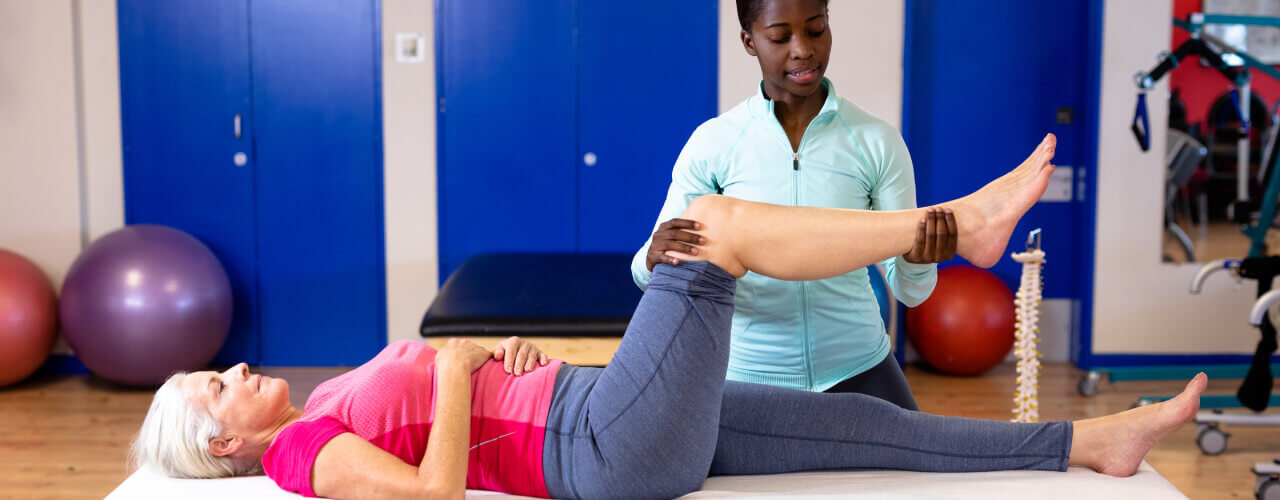Don’t let this common condition keep you from an active lifestyle!
We often hear about neck and lower back pain, but what about the area in between? Upper back pain is a common condition, and it can lead to the same debilitating pain as its neighbors to the north and south. Fortunately, like neck and lower back pain, physiotherapy at The Running Physio offers potential solutions to help you live a full, healthy life.
Upper back pain, also called thoracic back pain because it affects your thoracic spine, refers to pain occurring from the base of your neck to the bottom of your rib cage. Although it is a common condition, it’s not as common as lower back or neck pain simply because the vertebrae in your upper spine don’t flex as much as elsewhere.
While upper back pain often results from benign origins like poor posture or muscle strain, it can also be associated with more serious spinal conditions, such as osteoporosis or vertebral fractures, particularly in older adults. The physiotherapists at The Running Physio can help you understand the exact cause of your pain so you can pursue the best treatment approach.
Don’t let upper back pain hold you back! Request an appointment at our Toronto, ON physiotherapy clinic to learn about your options.
The Causes and Symptoms of Upper Back Pain
Upper back pain will feel differently based on the source of the pain. You might feel a sharp, burning pain or a dull, throbbing ache. Other symptoms include muscle stiffness, pain radiating into your extremities, or numbness.
The most common cause of upper back pain is muscle strain, and one of the most common ways people strain their upper back muscles is by wearing heavy backpacks. In fact, upper back pain is a common complaint among children due to backpack weights!
Improper posture is another common cause of upper back pain, especially if you do a lot of sitting at a computer. Poor back and shoulder strength can also contribute. Finally, whiplash can sometimes cause upper back pain and neck pain.
In some cases, however, upper back pain might be a sign of another spinal condition, such as the following:
- Osteoporosis, in which bone density decreases, thus increasing your risk of developing a vertebral fracture. Osteoporosis tends to affect women.
- Ankylosing spondylitis, an inflammatory condition in which some of the vertebrae in the spine fuse together.
- Spinal osteoarthritis, in which the cartilage of the joints starts to wear down, leading to pain. While osteoarthritis primarily affects the lower back, it sometimes affects the upper back as well.
No matter the cause of your upper back pain, our physiotherapists can help you find a solution that works for you.
How Physiotherapy Helps Resolve Upper Back Pain
Our physiotherapists offer a wide range of approaches to address upper back pain, especially when not caused by an underlying condition. Not only can we offer relief for the pain, but we can provide you with preventative strategies as well.
Exact treatment plans will vary based on several factors, including the root cause of your pain, but you can expect to see one or more of the following approaches:
- Manual therapy: Hands-on techniques like soft tissue massage, myofascial release, and thoracic spinal mobilization can help reduce pain and improve mobility.
- Strengthening and stretching exercises: Movement is often essential in pain management. We’ll show you how to stretch and strengthen your upper back muscles, mobilize your spine, and utilize proper breathing techniques.
- Postural corrections: Upper back pain often results from poor posture. Our therapists can help you strengthen your core to improve your posture and reduce pain.
- Modalities: We offer various pain management techniques, such as hot and cold therapy or TENs.
- Education and Activity Modification: Finally, we can offer suggestions on modifying day-to-day activities to help reduce your risk of developing upper back in the future.
What to Expect with Physiotherapy at The Running Physio
When you come in for your first appointment, one of our therapists will conduct a thorough physical exam to help us understand your symptoms and conditions. We’ll take a complete medical history and perform several movement and posture screens to help us identify any issues contributing to your back pain.
Using this information, our physiotherapists will develop a plan for addressing your lower back pain. Every plan is customized to the patient to ensure they receive the specific help they need. However, most plans will likely blend therapeutic exercise, manual therapy, and patient education.
Say Goodbye to Upper Back Pain!
Upper back pain can keep you from engaging in your favorite activities and prevent you from leading a healthy, active lifestyle. Many people go too long without seeking care for their pain–don’t be one of them! Request an appointment at our Toronto, ON physiotherapy clinic to learn more.








